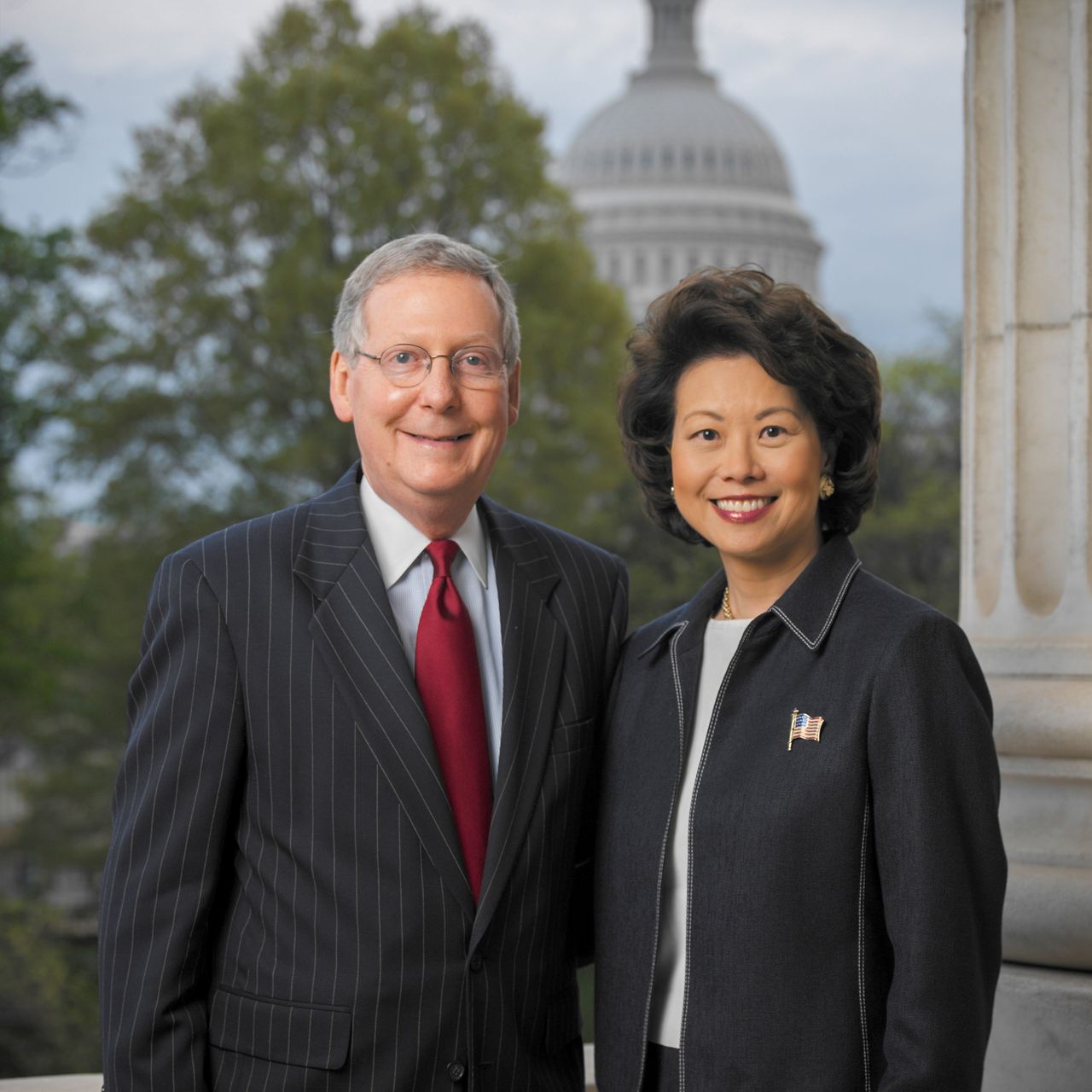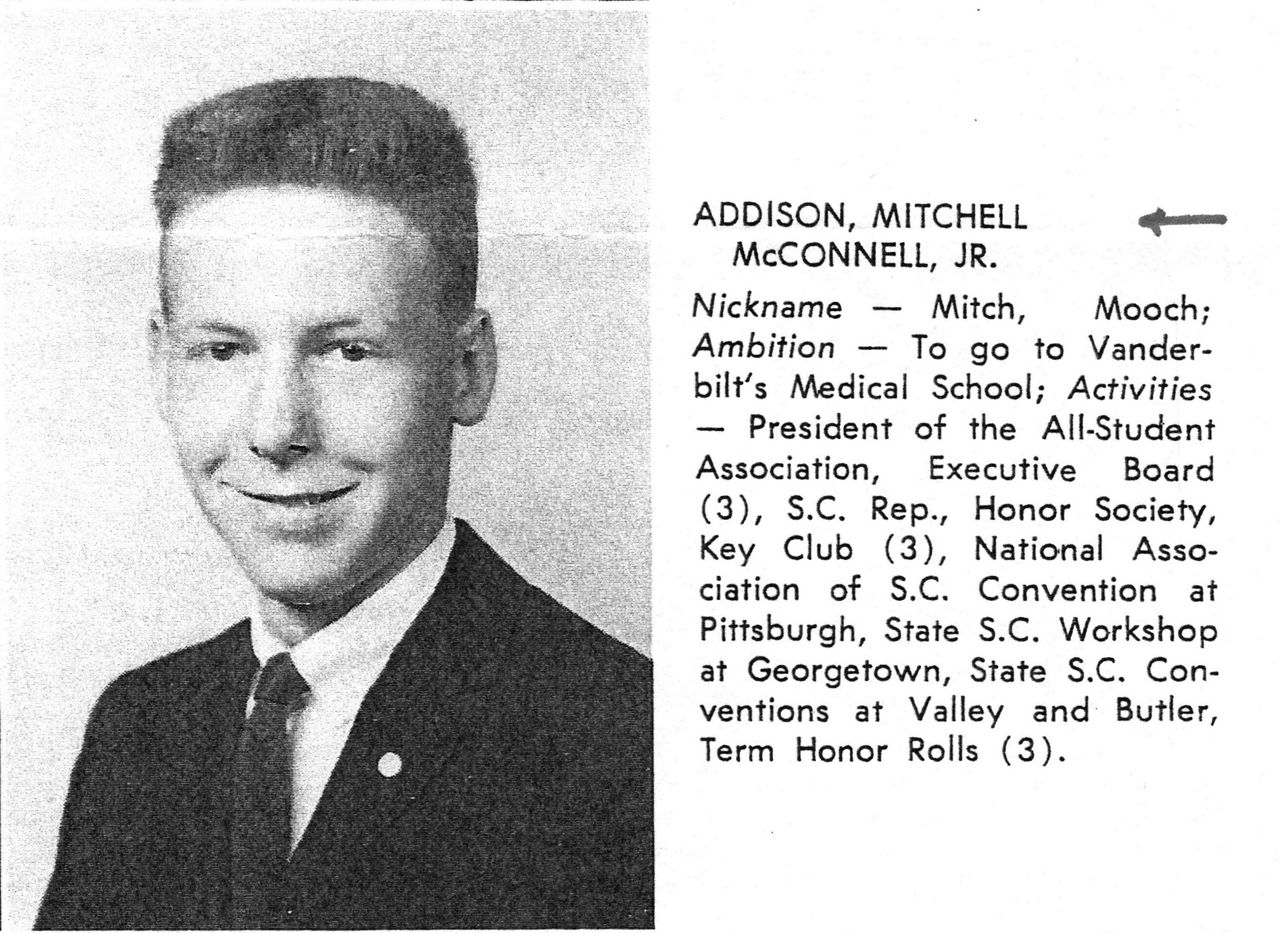Sen. Mitch McConnell, R-Ky., entered the United States Senate in 1985, achieving a goal he said was set in college while spending his summer as an intern on Capitol Hill.
“Once I got here, I was not exactly an overnight sensation but after a number years of going through the ranks, I became leader,” McConnell said in an interview with Spectrum News.
What You Need To Know
- Sen. Mitch McConnell became the longest-serving party leader in the history of the Senate this term
- This was the first time McConnell did not receive the unanimous support of his fellow Senate Republicans in a vote for leader, but he still came out with a significant win, 37-10
- McConnell said his role as leader “makes it even easier to look out for Kentucky” at the national level
- The interview for this story took place the day before McConnell was hospitalized after a fall at an event in Washington. His team said he was treated for a concussion and a fractured rib. McConnell was discharged from the hospital after several days and is undergoing inpatient rehabilitation
The 81-year-old has now been serving as his party’s Senate leader for over 16 years, making him the longest-serving leader in the chamber’s history. That record was previously held by Sen. Mike Mansfield, D-Mont., who led his party from 1961 to 1977.
McConnell was first elected as his party’s senate leader in 2006.
“It never occurred to me, frankly, I would be breaking Mike Mansfield’s record, who was kind of the gold standard,” McConnell said.

Prior to serving as Republican Senate leader, McConnell served in other leadership roles, including majority whip and the chairman of the National Senatorial Committee.
“To be there as long as [McConnell] has and in leadership, that’s really tough,” said Rep. Hal Rogers, R-Ky., the longest-serving current member of the House. “He’s paid attention to the needs of Kentucky, which I think helped him a lot in his re-election campaigns.”
McConnell, who has served as both majority and minority leader over the years, is in the room where decisions are made. Often, he’s been the one making them, which allows him to steer federal resources to Kentucky.
“Something that I think I clearly made possible, that benefited us enormously, was deciding to support the bipartisan infrastructure bill, without which I’m confident wouldn’t have passed,” McConnell said, adding that his support, “led to funding of the Brent Spence Bridge, amazingly enough without tolls.”
The Brent Spence Bridge, which connects Kentucky and Ohio, has needed improvements for decades. McConnell was one of 19 Senate Republicans to support President Joe Biden’s landmark bipartisan infrastructure law. In a rare joint appearance, McConnell stood alongside Biden to make the official announcement of the new bridge funding.
“I think the work that I do here in my leader role is not in any way inconsistent with looking out for Kentucky,” McConnell said. “In fact, it makes it even easier to look out for Kentucky.”
According to his memoir, he first started whipping votes during his student government days at duPont Manual High School in Louisville. He knew who it was important to talk to in order to get elected. McConnell has always had a knack for creating the needed support to fulfill his agenda.

“That doesn’t mean he’s a follower, he’s also a leader,” said Matthew Green with the department of politics at Catholic University. “In addition to knowing what his members want, it’s what they don’t want. He has used, to the extent he can, his power when he’s in the majority over the agenda to limit the kinds of bills that come to the floor, the kind of amendments that are offered so that they don’t create difficult votes for his members.”
Green added members in the Republican party “appreciate that and have in exchange supported him as leadership.”
McConnell is especially proud of his ability to harness votes to confirm judges in line with his conservative philosophy. He said that “what you decide not to do is hugely important.”
“I’ll give you the biggest example of that during my time as majority leader, was my decision not to fill the Supreme Court vacancy back in 2016 when Justice Scalia passed away, which ended up actually with a Republican, surprisingly, winning the White House.”
That decision to block President Barack Obama’s nomination of Merrick Garland was hugely consequential and controversial. It gave Republican Donald Trump the opportunity to nominate his first justice, Neil Gorsuch, immediately after becoming president. Two more Trump appointments followed, Brett Kavanaugh and Amy Coney Barrett, creating a solid 6-to-3 majority that has made several landmark rulings including overturning the right to an abortion.
Republican senators have voted McConnell to be leader nine times. This term, he did face a challenger, Sen. Rick Scott, R-Fla., but throughout the challenge McConnell remained confident he had the votes.
“I am not in any way offended by having an opponent of having a few votes in opposition,” McConnell said at a press conference after his re-election as the party’s Senate leader this term.
Although it was the first time McConnell did not receive the unanimous support of his fellow Senate Republicans, he still came out with a significant win, 37-10. One Senator in the room voted present.
“One of the keys to Mitch McConnell’s influence in the Senate is his ability to know where his party is,” Green explained. “He is a master at knowing where Republicans sit, where people in his party want to go.”
That knowledge seems to extend to his understanding of Republican voters as well. Even as many analysts predicted a “red wave” last November, McConnell expressed doubts that the Senate would switch to Republican control. He blamed “candidate quality.”
That assessment proved on target when controversial Trump-backed candidates failed to win races in several battleground states. Republicans ended up losing one seat, reducing their leverage in the narrowly divided senate.
“I’ve been the majority leader and the minority leader,” McConnell said, adding lightheartedly, “By the way, the majority is better.”
McConnell got to set the agenda as majority leader from 2015 to 2021 but has spent the rest of the time in leadership in charge of the minority party.
The interview for this story took place the day before McConnell was hospitalized after a fall at an event in Washington. His team said he was treated for a concussion and a fractured rib. McConnell was discharged from the hospital after several days and is undergoing inpatient rehabilitation.
His absence on Capitol Hill has sparked questions about how much longer McConnell may want to serve in this role and who could eventually step into the leadership position. McConnell is up for re-election in Kentucky in 2026.
Besides his own leadership, McConnell said this term is the “most powerful moment” he’s witnessed for Kentuckians in Washington.
“This is the most powerful delegation since I’ve been here,” McConnell said. “With Congressman Rogers, you have the longest serving House member called the dean of the House. Congressman Comer is chairman of an important committee. Congressman Barr and Congressman Guthrie [chair] important subcommittees.”
McConnell is the second Kentuckian to serve as leader in the United States Senate. Sen. Alben W. Barkley, D-Ky., served in a Senate leadership role from 1937 to 1949. Barkley later served as vice president under President Harry S. Truman.



